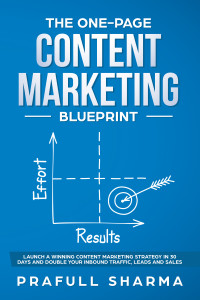What is the future of blogging and content marketing?
Content marketing has evolved so much through the years. Blogging, in particular, is changing, and there is increased competition to produce high-quality content across different media platforms. But in terms of trends that will define this very important aspect of content marketing, pay attention. Here are some of the trends that I think will shape the future of blogging and content marketing.
SEO will become more advanced
SEO has always been an important part of content marketing. Algorithms that dictate the rules behind SEO, however, are becoming more and more advanced. This means the days of simply stuffing content with keywords and adding spammy backlinks to your blogs are long over. True, that practice has been frowned on for quite a while, but as the technology gets ever more sophisticated, you really have to focus on creating high-quality content that thoughtfully incorporates SEO keywords and phrases.
Expertise and authority are more important than ever
As search engines begin to place more value on a site’s expertise, authority, and trustworthiness, this means Google will place more value on authors of pages who are recognized authorities on specific subjects.
So, not only are websites going to have to focus on crafting highquality, well-researched content, they also have to make sure that the authors of these pages are recognized authorities in their niche.
Multimedia posts are going to gain more traction
Multimedia content has always been known to boost engagement. This is why we make it a point to craft content that incorporates long form written content with relevant images, infographics, and videos. This is because search engines like Google seem to be focusing on user experience as much as delivering informative content.
Therefore, if an infographic can deliver the same information as a 1000-word wall of text, Google will want to prioritize an infographic that can deliver content in a more engaging manner. Keep in mind that online traffic is shifting to mobile. Long-form text doesn’t deliver the best experience on mobile phones.
Multi-channel content will rise
In the early days of content marketing, your online presence was usually just your website and maybe Facebook.
Today, this won’t be enough. You have to spread your efforts across every available platform that is relevant to your brand and audience. For example, in addition to your blog, which you house on your website, you should have Facebook and Twitter, as well. If you’re a more visual brand, being on Instagram and Pinterest is key. If you want to reach a younger demographic, it’s important that you’re on platforms they frequent—such as TikTok.
A single-channel approach is no longer effective, especially if you want to expand your audience base. It may sound a little overwhelming, but if you approach your content marketing in an organized manner, it’s easy to take your content and repurpose it across different platforms.
What’s the bottom line?
Blogging is definitely here to stay—but it will be used simultaneously with other forms of media and on other platforms.
If you have any questions, feel free to join the conversation on Twitter or LinkedIn. Or you can simply leave a comment below.
Share This Story
Get the latest growth ideas, strategies, and best practices delivered to your inbox.
Quick read that helps 7000+ subscribers.






